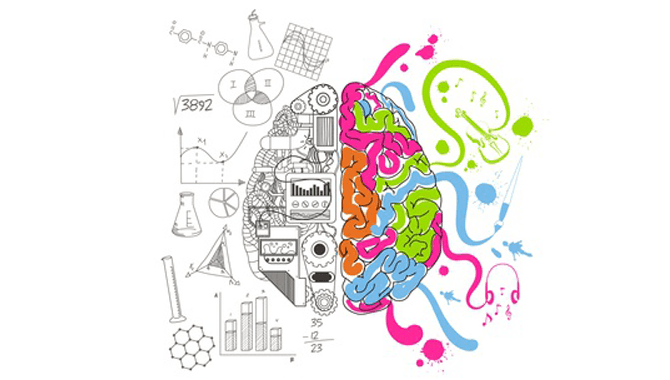
Job Strategies for Small Companies
March 9, 2021Is Reasonable Accommodation a Trade-Off?
July 29, 2023Have you ever wondered about the importance of disclosing your neurodivergence at work? It’s a topic that many individuals with neurodivergent conditions, such as autism or ADHD, have to consider. In this article, we will delve into the reasons why disclosing your neurodivergence can be beneficial and how it can help you navigate the workplace more effectively.
Disclosing your neurodivergence at work is a personal decision that should be made after careful consideration. However, it can have several advantages. Firstly, disclosing your neurodivergence allows your employer to provide you with reasonable accommodations that can help you perform your job to the best of your abilities. These accommodations can range from accommodations to your work environment to modifications in your work processes, based on your individual needs.
Furthermore, disclosing your neurodivergence can also foster a more inclusive and understanding work environment. By sharing your experiences and challenges, you raise awareness among your colleagues and promote a culture of acceptance and empathy. This can not only create a more positive and supportive workplace but also facilitate collaboration and teamwork.
In conclusion, disclosing your neurodivergence at work is a personal decision that can have a significant impact on your professional life. By doing so, you can open the door to reasonable accommodations and create a more inclusive work environment. In our upcoming article, we will explore the different approaches and strategies to consider when disclosing your neurodivergence and provide tips on how to navigate this process effectively. important?

The Importance of Disclosing Your Neurodivergence at Work
Disclosing your neurodivergence at work can have a significant impact on your professional life, as well as the overall work environment. Understanding neurodivergence, the benefits of disclosure, and the need for fostering inclusion and diversity are essential factors to consider. By creating a supportive work environment and promoting mental health and well-being, disclosing your neurodivergence can lead to increased trust, improved communication, and access to reasonable accommodations. Overcoming stigma and misconceptions through education and awareness is also an integral part of this process.
Understanding Neurodivergence
Neurodivergence is a term used to describe the variance of neurological development and functioning. It includes conditions such as Autism Spectrum Disorder (ASD), attention deficit hyperactivity disorder (ADHD), dyslexia, and many others. Neurodivergent individuals often have unique strengths and abilities that can contribute positively to the workplace. However, they may also face challenges in certain areas, such as communication, social interactions, or sensory processing.
The Benefits of Disclosing Neurodivergence at Work
Disclosing your neurodivergence at work can have several advantages. First and foremost, it allows your employer and colleagues to better understand your unique needs, strengths, and challenges. This understanding creates an opportunity for them to provide any necessary support or reasonable accommodations to ensure your success in the workplace.
Moreover, disclosing your neurodivergence can help break down barriers and promote a culture of inclusion and diversity. By sharing your experiences, you contribute to a more open and accepting work environment for both neurodivergent and neurotypical individuals. This increased understanding fosters empathy, reduces stigma, and promotes collaboration and innovation within teams.
Fostering Inclusion and Diversity
Disclosing your neurodivergence at work contributes to fostering inclusion and diversity in the workplace. By openly acknowledging and embracing neurodiversity, organizations create an environment that values and celebrates individual differences. This fosters a sense of belonging for all employees, regardless of their neurotype.
When employees feel included and supported, they are more likely to bring their authentic selves to work, enhancing their overall job satisfaction and engagement. In turn, this leads to higher productivity, better teamwork, and a positive work culture that attracts and retains diverse talent.
Creating a Supportive Work Environment
Disclosing your neurodivergence at work can help create a supportive work environment. When your employer and colleagues are aware of your unique needs and challenges, they can collaborate with you to find solutions and make appropriate adjustments. This collaboration may involve modifying work processes, providing assistive tools or technologies, or adjusting communication styles.
Creating an environment where everyone feels supported and understood is crucial for both individual and organizational success. When employees feel valued and respected, they are more likely to perform at their best, leading to improved job satisfaction and overall well-being.
Promoting Mental Health and Well-being
Disclosing your neurodivergence at work can also have a positive impact on your mental health and well-being. Many neurodivergent individuals face additional stressors and challenges in the workplace due to the mismatch between their neurotype and traditional work expectations.
By openly discussing your neurodivergence, you can reduce the pressure of hiding or pretending to be someone you are not. This transparency allows you to navigate the workplace more authentically and seek appropriate support when needed. It also promotes self-acceptance and resilience, leading to improved mental health outcomes.
Building Trust and Communication
Disclosing your neurodivergence at work can strengthen trust and communication within your professional relationships. By sharing your experiences and needs, you encourage open and honest conversations about neurodiversity. This creates a foundation for understanding, empathy, and a willingness to collaborate effectively.
Open communication also allows for constructive feedback, which can lead to personal and professional growth. When your colleagues and supervisors understand your neurodivergence, they can provide feedback and guidance that align with your unique strengths and challenges.
Accessing Reasonable Accommodations
One of the significant advantages of disclosing your neurodivergence at work is the ability to access reasonable accommodations. As mentioned earlier, reasonable accommodations are changes or adjustments made to the job or work environment to enable individuals with disabilities to perform their essential job functions.
By disclosing your neurodivergence, you provide your employer with the necessary information to assess and provide appropriate accommodations. These accommodations can include flexible work schedules, modifications to the physical workspace, access to assistive technologies, or adjustments to job tasks. These accommodations play a vital role in ensuring equal employment opportunities and enhancing your ability to succeed in your role.
Visit JAN for additional information on workplace accommodation.
Overcoming Stigma and Misconceptions
Disclosing your neurodivergence at work helps to overcome the stigma and misconceptions surrounding neurodiversity. Through education and awareness, you have the opportunity to challenge stereotypes and promote a more accurate understanding of neurodivergent individuals.
By sharing your experiences and educating those around you, you can debunk myths and foster an inclusive environment where all employees are valued for their unique contributions. Overcoming stigma and misconceptions is a crucial step toward creating a more equitable and accepting workplace culture.
Education and Awareness
Disclosing your neurodivergence also presents an opportunity for education and awareness within the workplace. By sharing resources, participating in training sessions, or organizing events, you can help educate your colleagues and supervisors about neurodiversity and the different ways it manifests.
Increasing awareness and understanding can lead to more inclusive practices and policies within the organization. It can also provide valuable insights into how to effectively engage and support neurodivergent individuals, ultimately benefiting the entire workforce.
Conclusion
In conclusion, disclosing your neurodivergence at work is crucial for fostering an inclusive work environment, promoting mental health and well-being, building trust and communication, accessing reasonable accommodations, overcoming stigma, and promoting education and awareness. By embracing neurodiversity and creating a workplace that values and supports individual differences, organizations can unlock the potential of all employees. Remember, your neurodivergence is an essential part of who you are, and by sharing it, you contribute to a more inclusive and diverse workforce.



